Director Anne Renton broke onto the scene with her first feature film, The Perfect Family, starring two-time golden globe award winner Kathleen Turner. Since that impressive debut in 2012, Anne’s carved out a stellar career in Television, including multiple episodes of The Good Doctor, The Fosters and Bones. In 2023 Anne won the DGA award for Outstanding Directorial Achievement in Children's Programs for an episode of the Apple TV+ show Best Foot Forward.
Assemble spoke with Anne about her path to directing, her approach to work, advocacy, and relationships she's built with actors and crew.
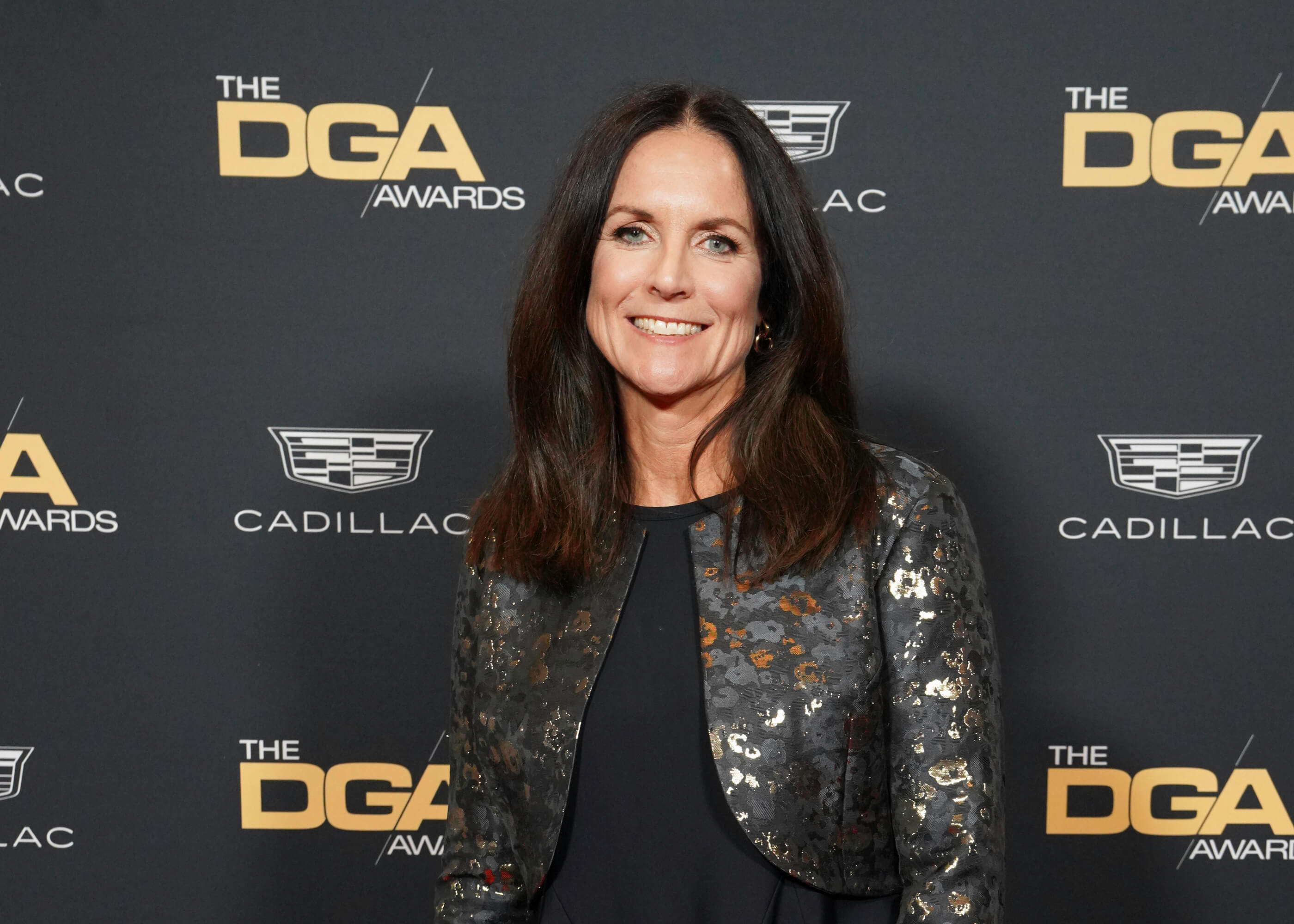
Assemble: Anne, your path to being a prolific and award-winning Television Director is unique. You graduated from Sydney University with a B.S. in Physiotherapy. How has your experience and interest in the healing arts guided how you approached your career and how you work with actors and crew?
Anne Renton: I have a background in the medical field and I studied at a healing school. The healing work involved the study of psychology, somatic and body oriented therapies, interpersonal dynamics and the practice of self awareness and meditation. This experience supports me to have a grounded and holistic approach when directing. Actors are expected to understand and explore human defenses, feelings and pain as they mine the deeper truths of their characters.
The healing work I did encompassed this exploration, which is a huge asset when navigating working as a director - both with analyzing scripts and characters, and also when working with actors. And my experience in the medical field is invaluable when I work on medical shows or any medical storyline in a show. I have scrubbed in and observed surgery, worked in intensive care, treated patients pre and post op and worked in rehab.
Assemble: It’s over 15 hours to fly from Sydney to Los Angeles. As a young creative, Hollywood might have felt as far as the moon. Was America always the end game? Do you find significant artistic and logistic differences between Australian cinema and U.S filmmaking?
Anne Renton: I left Australia to study at a Healing School, and at that time the entertainment industry and Hollywood was not on my radar at all. But once I got to New York I began studying acting and fell in love with the craft, script analysis and storytelling. It was a natural step to start directing other actors in acting class and for small showcase pieces in NY. I soon realized I was more suited to being behind the scenes and once I moved to LA I started focusing on directing.
I actually have not worked as a director in Australia - yet. In Australia there is support offered to film and TV creatives through state and national screen bodies, which does not exist in the US. I think in the independent space it is challenging to get projects financed whatever country you are in.
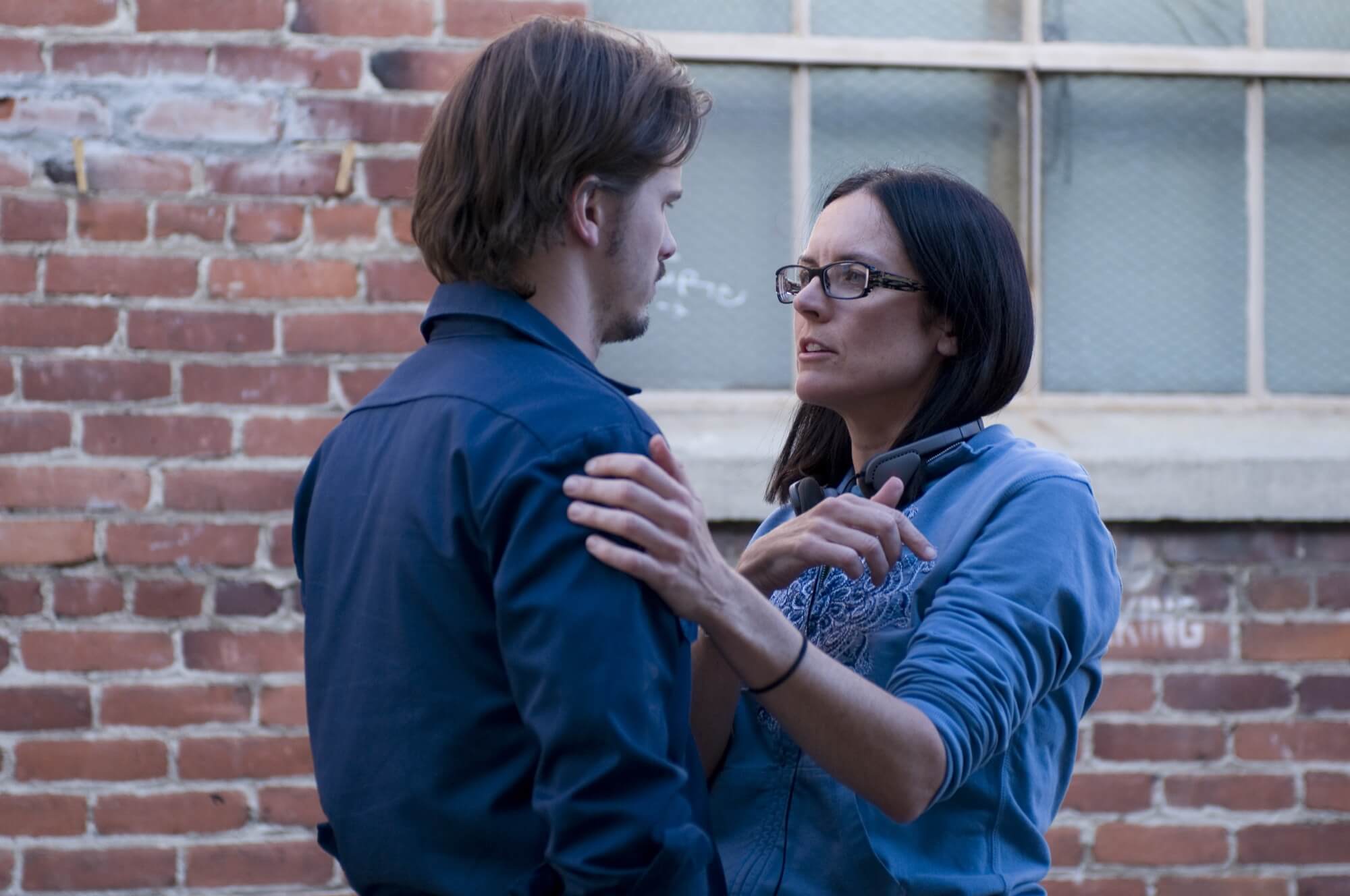
Assemble: Your first project was the sharp comedy short, Love is Love - which was a table turning response to California’s prop 8 ban on gay marriage. You followed that up a few years later with your first independent feature, The Perfect Family, a relationship comedy about a Catholic woman’s struggles to accept her modern family, which included a gay daughter. You are one of the founders of the LGBTQ+ committee at the DGA which became an official part of the Guild in 2022. You were recently elected to serve on the DGA inaugural LGBTQ+ Representative Committee. Clearly you have a commitment to inclusion and diversity in front of and behind the camera. Why is it important and how are we doing?
Anne Renton: I am proud to have been part of founding the LGBTQ+ committee at the DGA and grateful to be on the Representative Committee. This committee is long overdue and I am thrilled by the support of all the queer members of the guild and everyone who has shown support for this group. LGBTQ+ directors and directing team members so far have not been included in numbers and tracking around diversity, so there is no way to really know how we are doing behind the camera.
GLAAD publishes a Where We Are on TV study which analyzes the overall diversity of primetime scripted series regulars on broadcast networks and assesses the number of LGBTQ regular and recurring characters on primetime scripted cable programming and original scripted streaming series on the services Amazon, Apple TV+, Disney+, HBO Max, Hulu, Netflix, Paramount+, and Peacock.
Overall those numbers are slowly rising. It is important that the hiring practices on all shows, and in particular shows with LGBTQ characters and storylines, include the hiring of queer crew, directors and directing team members.
I am currently attached to direct a feature project with a queer lead character and cannot wait for that to get into production.
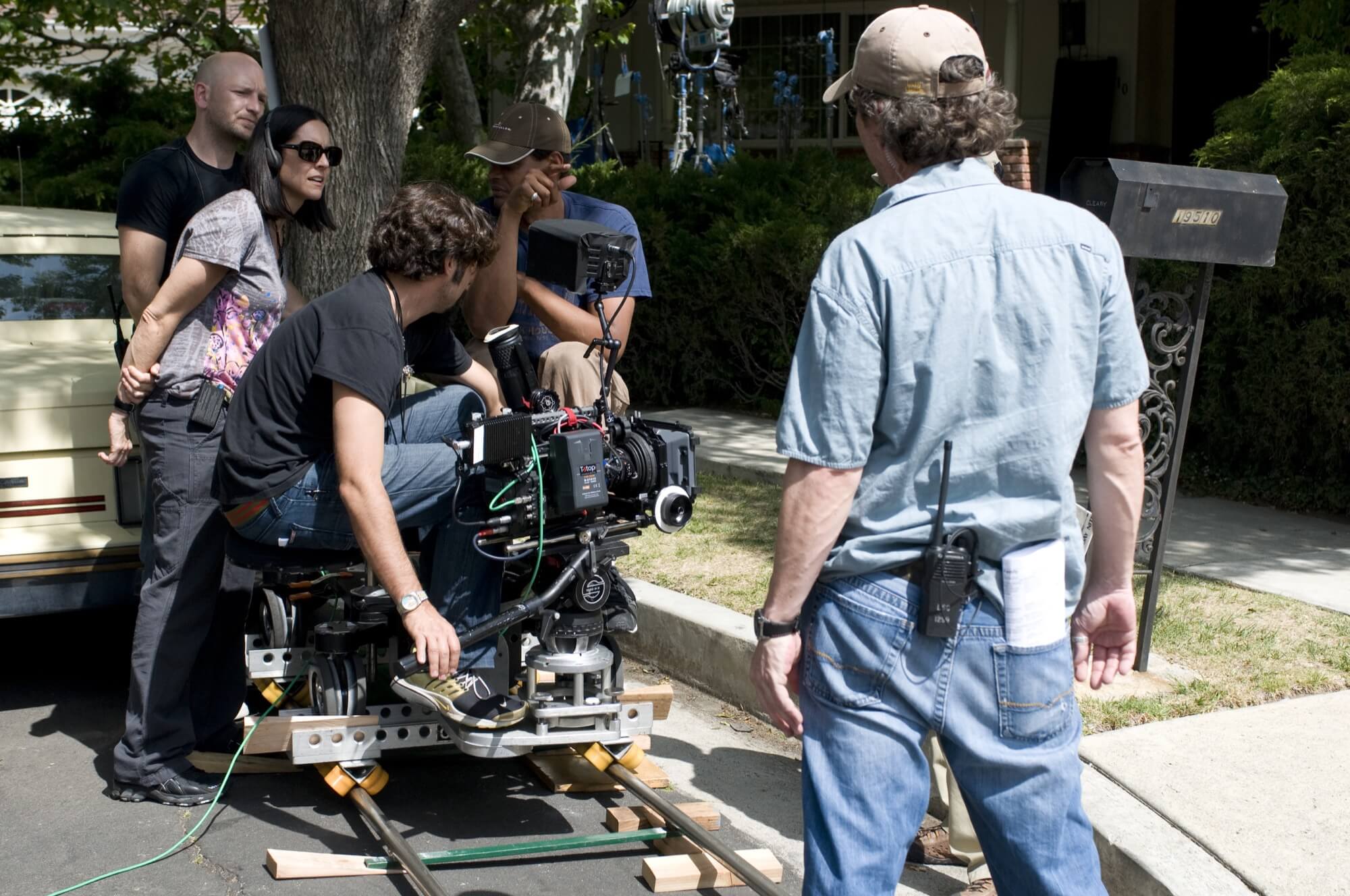
Assemble: The jump from independent filmmaker to TV director doesn’t happen overnight or in a vacuum. In 2015, you completed the Warner Brothers Directing Program. Can you take us through how you found that program, the work it entailed, what you learned and the valuable relationships you formed?
Anne Renton: I was in the 2012-14 ABC Directing Program first. My feature film, The Perfect Family, helped get me into that program. My producers and one of my lead actors, Emily Deschanel, wrote recommendation letters and then a rigorous interview process followed. The program involved some workshops, but primarily it was a TV shadowing program and I was a shadowing director on several shows. I went on to complete the WB Directing Program as well as the CBS Directing program. A few of the directors I shadowed continued to advocate for me over the years and were very helpful in getting my career going. It has been quite a long journey to become a working director in TV.
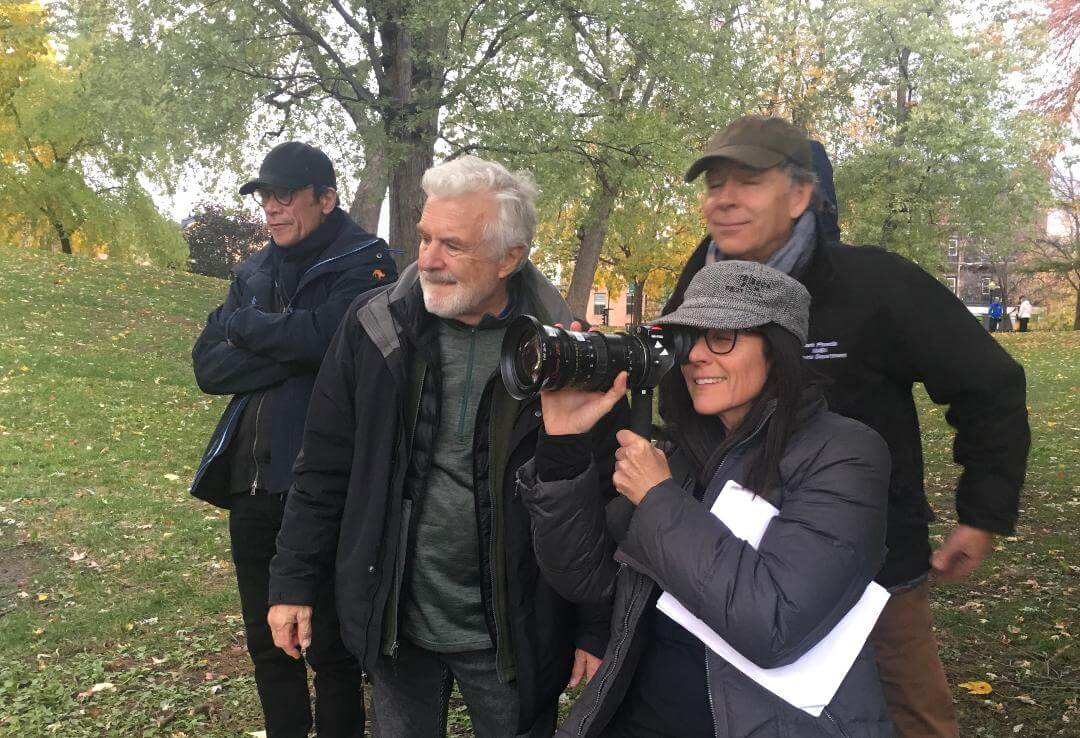
Assemble: Since 2015, you have worked steadily as a TV Director. Sometimes you must come on board for one episode and join a team of actors and crew that have been working together for a sustained time, other experiences you’ve done multiple episodes and you develop a shorthand and a way of working. What have you found aids you in building a rapport quickly with the producers, crew and talent?
Anne Renton: It definitely is a unique position as a director to have to join an already established and often tight knit community on a TV show. Before I start on a new show, I always try to talk to people who have worked on that show. It is important to be extremely prepared- to really know the show, the storylines and the tone. Understanding that the producer is juggling many things- budget, scheduling - and being aware of that, is extremely helpful. In terms of crew, acknowledging everyone's hard work and being open to collaboration where appropriate, keeps everyone invested and excited by the work. And being respectful of the cast’s time and energy and understanding how they like to work is important. Nowadays, auditions for guest roles are all sent in virtually, so one casts actors without having met them in person. One thing I like to do is always try and call my guest cast so we can have time to connect before they arrive on set.

Assemble: The pace of TV is much quicker than film. What is your thought process when crafting a shot list to make sure you make your day and get what you need? And as someone with an acting background and interested in character driven narratives, given the often lack of time for rehearsal - what is your strategy guiding performance?
Anne Renton: People always say the pace of TV is quicker than film, and it is, but the pace of a low budget indie film is very fast too! When crafting a shot list my first priority is always story, and then efficiency. When I look at a TV episode as a whole, I try to craft each act so there is a balance in terms of the visuals and blocking and camera movement. But it is also important to be able to look at the schedule of a day and know where you can adapt and consolidate, if needed. In terms of actors’ performances, on longer-running shows the main actors know their characters welI. I spend a lot of time in prep breaking down each scene and understanding its function and each character’s intention. But I think the most important thing is to understand how each individual actor likes to work and to be able to adapt your directing style to fit with them. That will help earn actors trust and facilitate a true collaboration.
Assemble: It's such a skill to be open to changing the way you normally work to accommodate the needs of an actor or the needs of production to get the best outcome. We'd love to pull back the curtain and have you take us through the prep for a scene that was impactful for you.
Anne Renton: A day that stands out for me on a show I directed was a large location day that involved quite a few scenes with many background actors and included filming a Baraat (Indian wedding procession with live music and dancing). The showrunner and I had discussed one of the scenes in prep and I felt it could be played either as a day scene or as a night scene, which would be helpful if we couldn't fit it into the daylight hours.
On the day all sorts of production challenges emerged that we could not have predicted. It took much longer to get our lead actresses and all the background that day through hair and makeup in preparation for the big Indian wedding. Then, around an hour into the shoot, a crucial crew member left for personal reasons and we had to wait for someone to replace them. As a result, we started filming 2 hours late, but we still had to get everything done.
My focus had to be on the story and shifted to only getting the important shots, and getting them fast. We changed the order of our filming day and thankfully had the contingency plan for that one scene which we committed to filming later in the evening. The entire team had to step up, collaborate, and move fast to complete this almost impossible task, which we miraculously accomplished without going over schedule.
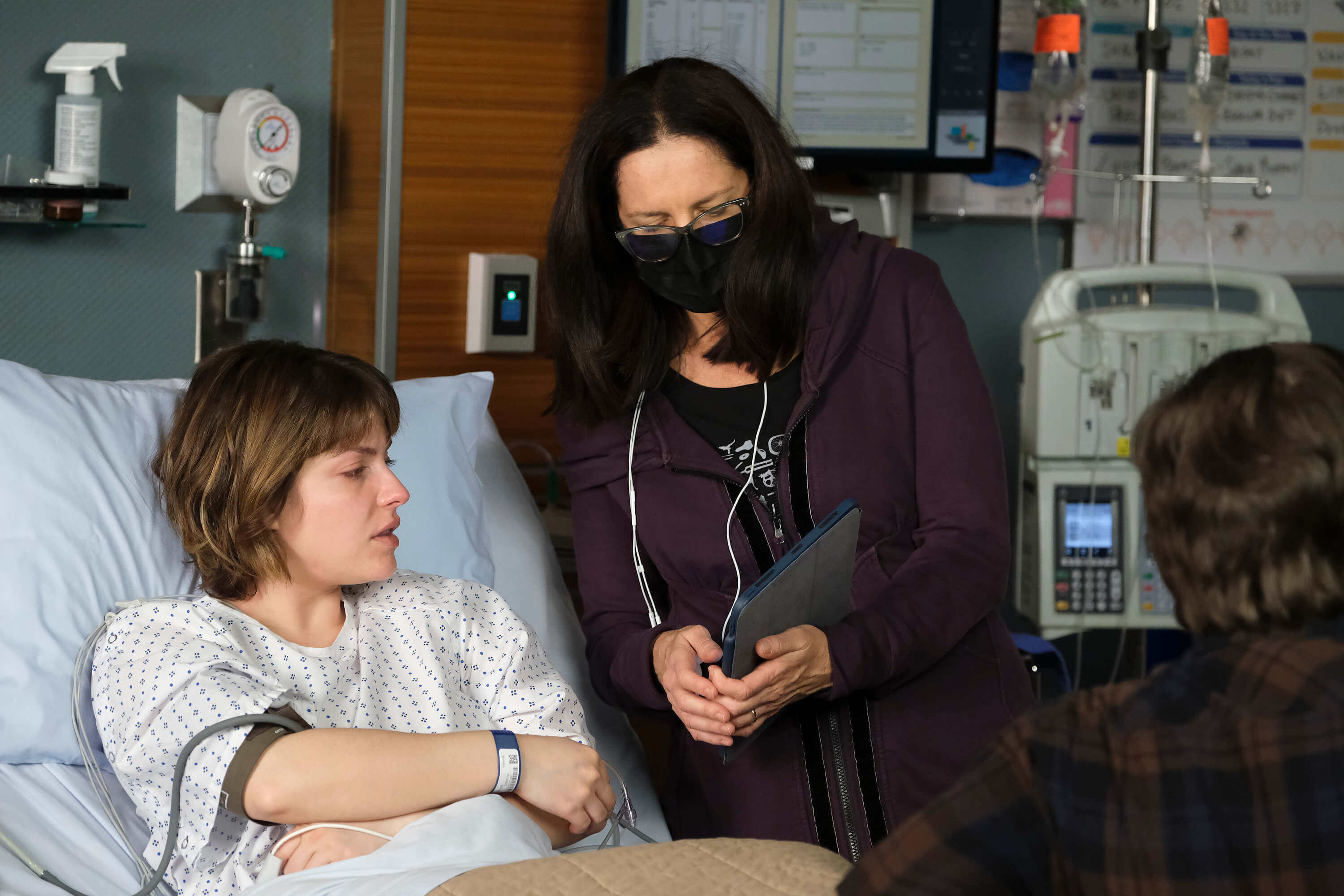
The Good Doctor / ABC/Jeff Weddell
Assemble: You recently won a DGA award for directing the Apple TV+ family comedy drama, Best Foot Forward, which features many young actors. You’ve been hired to direct a few shows that feature child actors. What are the unique challenges involved when working with minors?
Anne Renton: There are many additional scheduling challenges that exist when working with young actors. Kids are only allowed to work a certain number of hours in a day (which varies depending on their age), they have to do a certain amount of school each day within those hours and they are generally less experienced than adult actors. On first season shows I find that younger actors need more directing and support, as they are still finding their characters and the world of the show is still being developed.
The unique challenge I encountered specifically on my episodes of Best Foot Forward was that in addition to our lead actor, who wears a prosthetic leg and had never acted before, I had three other actors with limb differences - two of whom had never acted on camera before.
One of the guest actors was an eight year old girl with no acting experience at all. It was really important to make sure she felt safe and had the time to adjust to filming as the scene was very personal - it involved her prosthetic leg being removed as well as having a heartfelt conversation with the 12 year old lead.
Assemble: Clearly some of the most innovative, creative work is happening on streaming and network TV, but there seems to be a pattern of women filmmakers doing one or two feature films and then transitioning to TV. Do you feel there are still struggles for women finding funding for feature films or being hired by the studios to helm features, or is it simply that television is the more creative landscape that lures directing talent to the small screen?
Anne Renton: I think it is definitely hard for anyone to get funding for feature films. In the studio space there has been more of a push for women directors, but those opportunities are few and mostly going to very experienced directors - so it is hard for women to break into directing studio films. There are more opportunities in TV these days for women, thus we’re seeing greater numbers of women directors in that medium.
Assemble: Finally, any small or large hack you’d like to share that makes your job better, easier, more fun?
Anne Renton: Well, my best directing tool, which is quite widely used now, is Scriptation. It is an app that allows you (with an iPad Pro) to be paperless. You can annotate all your directing work directly on scripts as well as add pages to scripts and add in shot lists, floor plans and pictures. And when new script drafts come out it has the ability to transfer all your notes from one draft to the other. It has so many fantastic functions - as well as bookmarking scenes, which I do every night before I film so I have quick access to the scenes for that day. And my favorite snack on set is Paleovalley Superfood Bar!

